- News
- Reviews
- Bikes
- Components
- Bar tape & grips
- Bottom brackets
- Brake & gear cables
- Brake & STI levers
- Brake pads & spares
- Brakes
- Cassettes & freewheels
- Chains
- Chainsets & chainrings
- Derailleurs - front
- Derailleurs - rear
- Forks
- Gear levers & shifters
- Groupsets
- Handlebars & extensions
- Headsets
- Hubs
- Inner tubes
- Pedals
- Quick releases & skewers
- Saddles
- Seatposts
- Stems
- Wheels
- Tyres
- Tubeless valves
- Accessories
- Accessories - misc
- Computer mounts
- Bags
- Bar ends
- Bike bags & cases
- Bottle cages
- Bottles
- Cameras
- Car racks
- Child seats
- Computers
- Glasses
- GPS units
- Helmets
- Lights - front
- Lights - rear
- Lights - sets
- Locks
- Mirrors
- Mudguards
- Racks
- Pumps & CO2 inflators
- Puncture kits
- Reflectives
- Smart watches
- Stands and racks
- Trailers
- Clothing
- Health, fitness and nutrition
- Tools and workshop
- Miscellaneous
- Buyers Guides
- Features
- Forum
- Recommends
- Podcast
review
 2022 WTB Exposure TCS Fast Tyre Fitted 1.jpg
2022 WTB Exposure TCS Fast Tyre Fitted 1.jpg£55.00
VERDICT:
A bit weighty, but this is a smooth-rolling tyre that delivers confidence-inspiring grip levels
Quick rolling
Good grip in the corners
Hold pressure well
Very tight to fit to rims
Weight:
424g
Contact:
At road.cc every product is thoroughly tested for as long as it takes to get a proper insight into how well it works. Our reviewers are experienced cyclists that we trust to be objective. While we strive to ensure that opinions expressed are backed up by facts, reviews are by their nature an informed opinion, not a definitive verdict. We don't intentionally try to break anything (except locks) but we do try to look for weak points in any design. The overall score is not just an average of the other scores: it reflects both a product's function and value – with value determined by how a product compares with items of similar spec, quality, and price.
What the road.cc scores meanGood scores are more common than bad, because fortunately good products are more common than bad.
- Exceptional
- Excellent
- Very Good
- Good
- Quite good
- Average
- Not so good
- Poor
- Bad
- Appalling
The Exposure TCS Fast Tyre is designed for adventure/road according to WTB, and a pair of them in this 36mm width will turn your gravel bike, hybrid or all-road bike into a smooth-rolling machine on any hardpacked surface. Rolling resistance is great, and they feel supple too. Just put aside a bit of time to fit them though, as I found them a tight fit to get on the rims.
We are seeing road bikes such as the Mason SLR, the Fara F/AR, and the currently being reviewed J.Guillem Major coming fitted with large-volume tyres, ranging from 35mm to 47mm wide in these cases, and these are exactly the sort of bikes the Exposure is pitched at, especially in this 36mm size. That and the fact that you can easily convert your gravel bike into a road machine or make it more suitable for commuting on the tarmac. If you're after new gravel tyres why not check out our best gravel tyres buyer's guide, or our best road bike tyres buyer's guide for slicker rubber.
Weighing 424g on the road.cc scales the Exposures aren't exactly light compared to some others on the market. For example, a 35mm Panaracer GravelKing Slick TLC weighed in at just 309g.
That extra mass does blunt acceleration a bit, especially from a standing start, but that is offset by what I felt to be good rolling resistance. For such a large tyre they zing along the road and with its 120TPI (threads per inch) casing they feel reasonably supple too, a suppleness hardened just a little by the bead-to-bead SG2 puncture protection layer.
This layer is designed to keep deep cuts and holes at bay, and over the winter review period the tyres seemed tough enough to be used on hardpacked surfaces such as towpaths or shared-use paths.
The Exposures use WTB's Dual DNA compound. This has firmer rubber in the centre for durability and that reasonable rolling resistance, while the shoulders use a finely textured, softer rubber for improved grip in the corners.
The result is a set of tyres that gripped well even when both the tyres and the road surface were cold. They don't have the performance of a lightweight race tyre, but when you ask them to, they track well through the bends and give you plenty of confidence when you push on a bit.
One of my test routes has an off-camber chicane on a fast downhill, and in this section, I found the tyres positive even when they were firmly pumped up. I found they offered a decent level of bite on the asphalt, and when transferring the weight from one side of the tyre to the other without breaking traction as they passed through the firmer centre section.
Feedback levels are also good.
The main downside of the tyres is that I found them far from easy to fit. I tried them on a couple of rims with internal widths of 21mm and 23mm, and on both of these I had to really push the final section of the bead over with a tyre lever. These aren't tyres you want to run with an inner tube, as it would be very hard to fit without causing a pinch puncture.
The much better news was that after a week mounted on the rim the Exposures had stretched enough that they were easy to remove, easing my concerns over having to take them off while in the middle of nowhere to fix a puncture.
I have found that with lot of WTB tyres I have used in the past, especially those with tan walls, they weep like mad when you first fit them tubeless with sealant. I had no such issues with these, though, as once I'd inflated them using an Airshot no sealant came out of the sidewalls, and they maintained pressure with barely any drop over time.
Value
They are priced at £55 each, which is just a fiver dearer than the Panaracer GravelKing Slick TLC tyres mentioned earlier, which Hollis found tough, light and grippy.
If you want something light and fast at this size, the Challenge Strada Bianca tyre is a great choice as we've found each time we have reviewed various iterations and sizes. Dave was certainly impressed with the 36mm Challenge Strada Bianca Pro TLR when he put it through its paces, but you're now looking at £83 per tyre in this width. Even if it is a handmade classic that is a lot of money.
Conclusion
Overall, the WTB Exposures are a competent all-rounder. They are carrying a bit of weight which blunts acceleration, but for a tyre that is reliable over various surfaces I wouldn't say that is a dealbreaker.
Verdict
A bit weighty, but this is a smooth-rolling tyre that delivers confidence-inspiring grip levels
road.cc test report
Make and model: WTB Exposure TCS Fast Tyre
Size tested: 36x700
Tell us what the product is for and who it's aimed at. What do the manufacturers say about it? How does that compare to your own feelings about it?
WTB says: "This versatile tyre is designed for dependable rolling performance, wherever your next road adventure leads you. WTB has equipped it with a high-quality Dual DNA compound for the perfect mix of efficiency, traction and durability as you tackle every mile of road. Thanks to its TCS Light/Fast Rolling configuration, its fast and efficient centreline tread compound matched to sticky, low durometer side knobs coat a supple, gram-conscious casing. Another highlight is its SG2 puncture protection, which defends all surfaces of the tyre by providing an uninterrupted layer of protection from bead to bead."
The WTBs are a reliable all-round slick tyre that works well on the road.
Tell us some more about the technical aspects of the product?
Compound: Dual DNA
Level: TCS Light/Fast Rolling SG2
Puncture Protection: SG2
Use: Adventure Road
TPI: 120tpi
Bead: Tubeless Folding
Type: Clincher
ETRTO: 700x30c Option: 30-622; 700x36c: 36-622
Optimal Inner Rim Width: 700x30c Option: 15c - 24c; 700x36c: 17c - 26c
Single or Pair: Single
Conditions: Pavement
Rate the product for quality of construction:
8/10
Rate the product for performance:
8/10
Rate the product for durability:
8/10
Rate the product for weight (if applicable)
6/10
Rate the product for comfort (if applicable)
7/10
Rate the product for value:
5/10
Tell us how the product performed overall when used for its designed purpose
A quick-rolling tyre with good puncture protection.
Tell us what you particularly liked about the product
Good grip levels in the corners.
Tell us what you particularly disliked about the product
They were tight to fit on a few different rims.
How does the price compare to that of similar products in the market, including ones recently tested on road.cc?
They are around the right sort of money, coming in at just a fiver more than the equivalent GravelKings, which are well known for their good value for money.
Did you enjoy using the product? Yes
Would you consider buying the product? Yes
Would you recommend the product to a friend? Yes
Use this box to explain your overall score
Not the lightest, or the fastest rolling, but they are robust and reliable while still offering good performance on tarmac and other hard surfaces. They aren't the easiest to fit either.
About the tester
Age: 44
I usually ride: This month's test bike My best bike is: B'Twin Ultra CF draped in the latest bling test components
I've been riding for: Over 20 years I ride: Every day I would class myself as: Expert
I regularly do the following types of riding: time trialling, commuting, club rides, sportives, fixed/singlespeed,
Since writing his first bike review for road.cc back in early 2009 senior product reviewer Stu has tested more than a thousand pieces of kit, and hundreds of bikes.
With an HND in mechanical engineering and previous roles as a CNC programmer/machinist, draughtsman and development engineer (working in new product design) Stu understands what it takes to bring a product to market. A mix of that knowledge combined with his love of road and gravel cycling puts him in the ideal position to put the latest kit through its paces.
He first made the switch to road cycling in 1999, primarily for fitness, but it didn’t take long for his competitive side to take over which led to around ten years as a time triallist and some pretty decent results. These days though riding is more about escapism, keeping the weight off and just enjoying the fact that he gets to ride the latest technology as part of his day job.
Latest Comments
- Disgusted of Tunbridge Wells 1 sec ago
Absolutely disgusting article!...
- chrisonabike 32 min 52 sec ago
Is it a catchy but meaningless hook from a European song contest runner up of yore?...
- a1white 40 min 50 sec ago
Yes, I've had this same light for years. It works well and is reliable, but it's a few years old now.
- andystow 49 min 2 sec ago
A bargain at under £72 per watt!
- Surreyrider 1 hour 8 min ago
Our policing and legal systems are based on witnesses, apart from when it comes to driving apparently.
- mdavidford 2 hours 57 min ago
It looks like it would give you more of a sideways elliptical motion - like a cross-trainer - rather than the up-and-down of the Alenax.
- wtjs 3 hours 14 min ago
They've only got two wheels on the road, so it doesn't count as parking in the road...





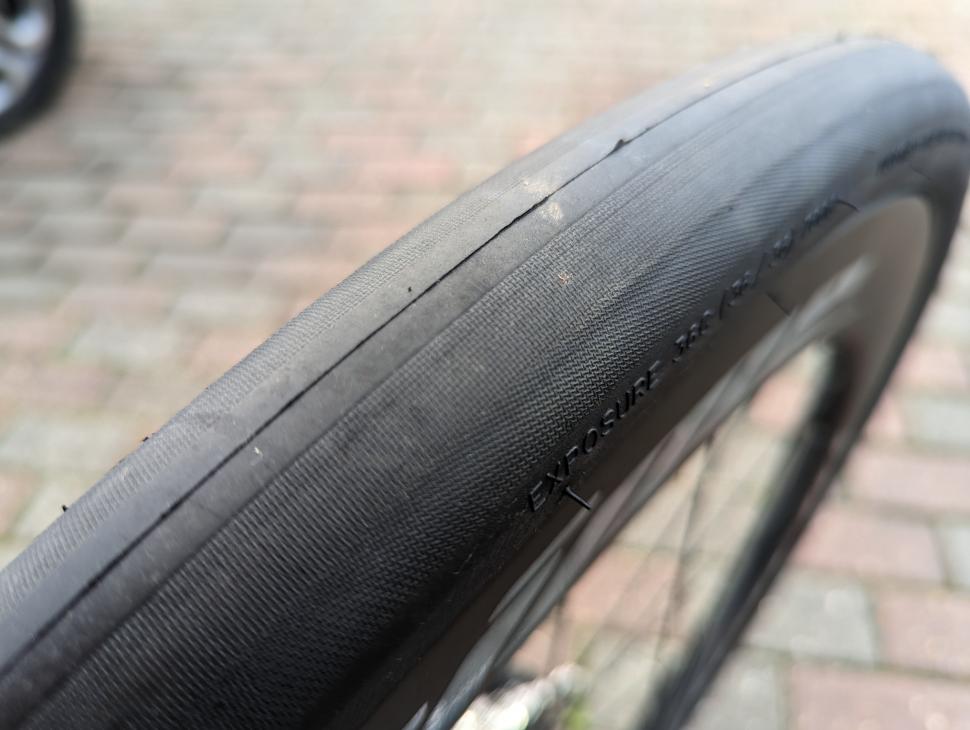
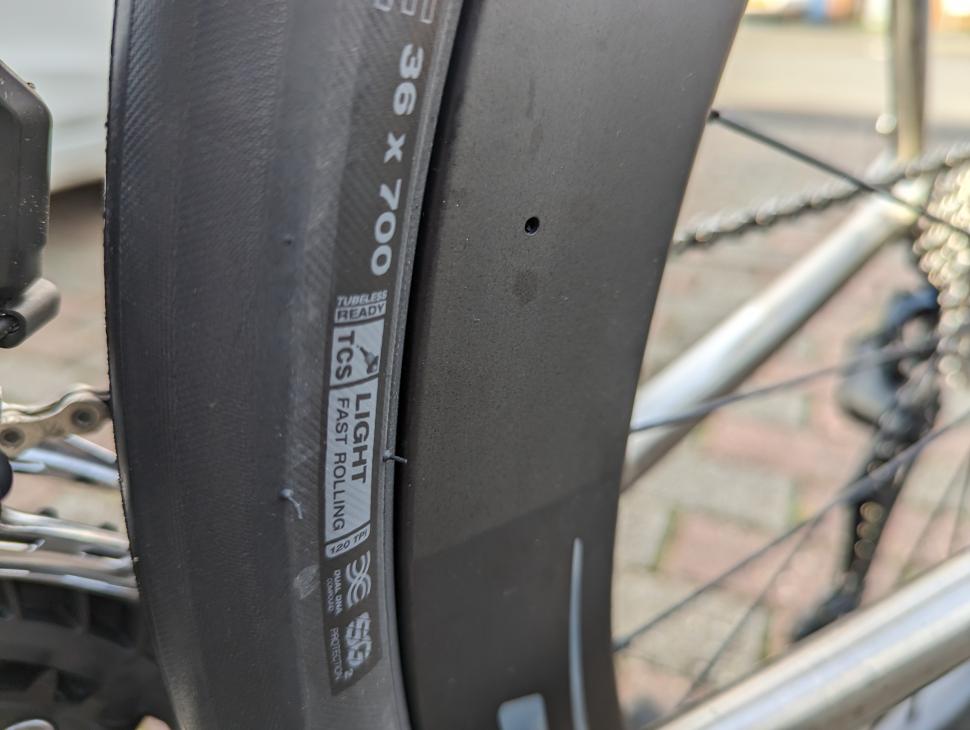
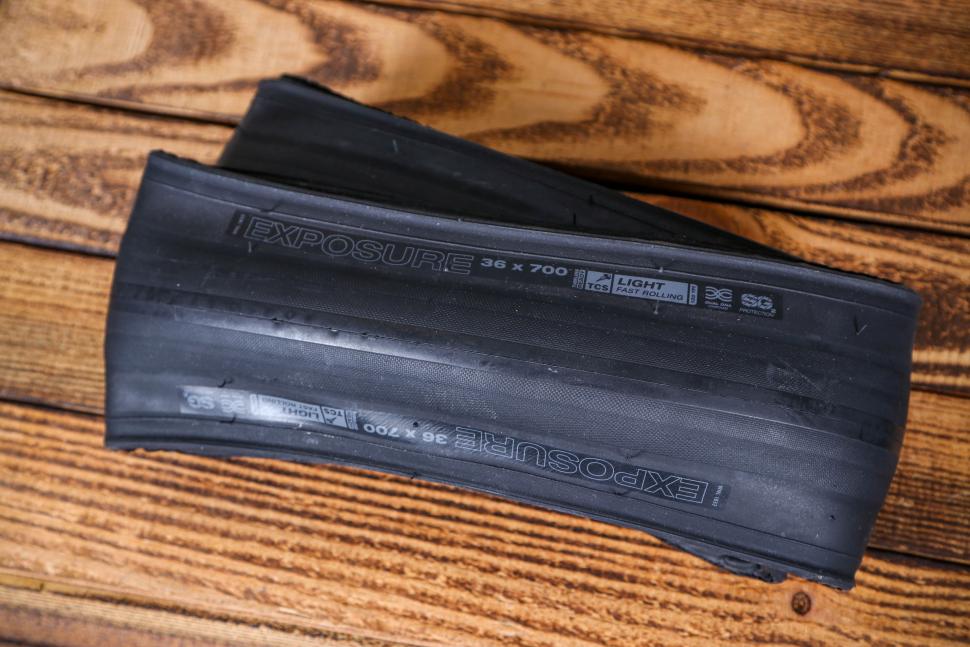

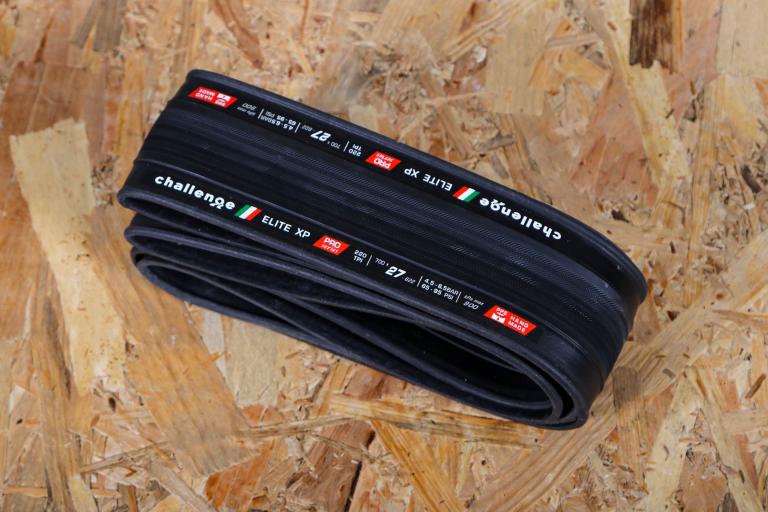
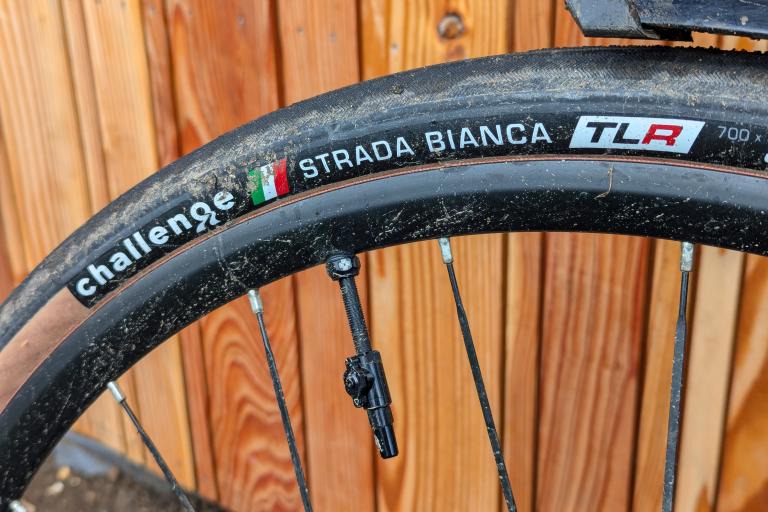
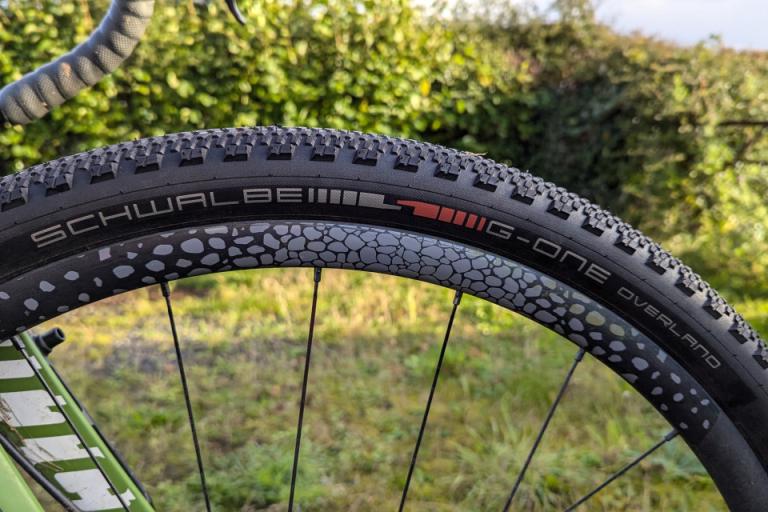
Add new comment
5 comments
Will consider these. I currently have Panaracer Gravelking TLCs on a Fairlight Faran, and have been pleased with the ride feel, but disappointed with puncture resistance. I'm running them tubed (as supplied by Fairlight) and do tend to like a firm tyre, so I'm running them at 60psi, but I've had four punctures across two audaxes (despite replacing the rear in between). Maybe just bad luck. Maybe tubeless tyres should just be run tubeless. Maybe the TLCs just need TLC.
You said it - tubeless should be run tubeless.
Because they are designed to rely on sealant and so have a lighter casing?
That's a bizzarre statement. Tubeless should be perfectly capable of being run with tubes. Otherwise what happens when you get a hole which is too big to seal? Most people whould check for (previously sealed) sharps in the tyre, put a tube in and continue. To suggest that tubeless tyres cannot be run with tubes means carrying a spare tyre, sealant and an air tank to seat the tyre or relying on rescue. that seems less than ideal to me, and a a strong argument for sticking with tubes.
I've had a inner tube in one of my tubless tyres for quite some time, due to needing to change over on a ride and not feeling any great urgency to switch back afterwards. (TSS rims mandate use of TSS tyres)
I interpret it as meaning that tubeless tyres with a tube will be more puncture prone than running them tubeless. It's even possible that they'll be poorer than a non-tubeless tyre that has some puncture protection built in.
But apart from possible punctures, there shouldn't be any problem with sticking in a tube to get home.